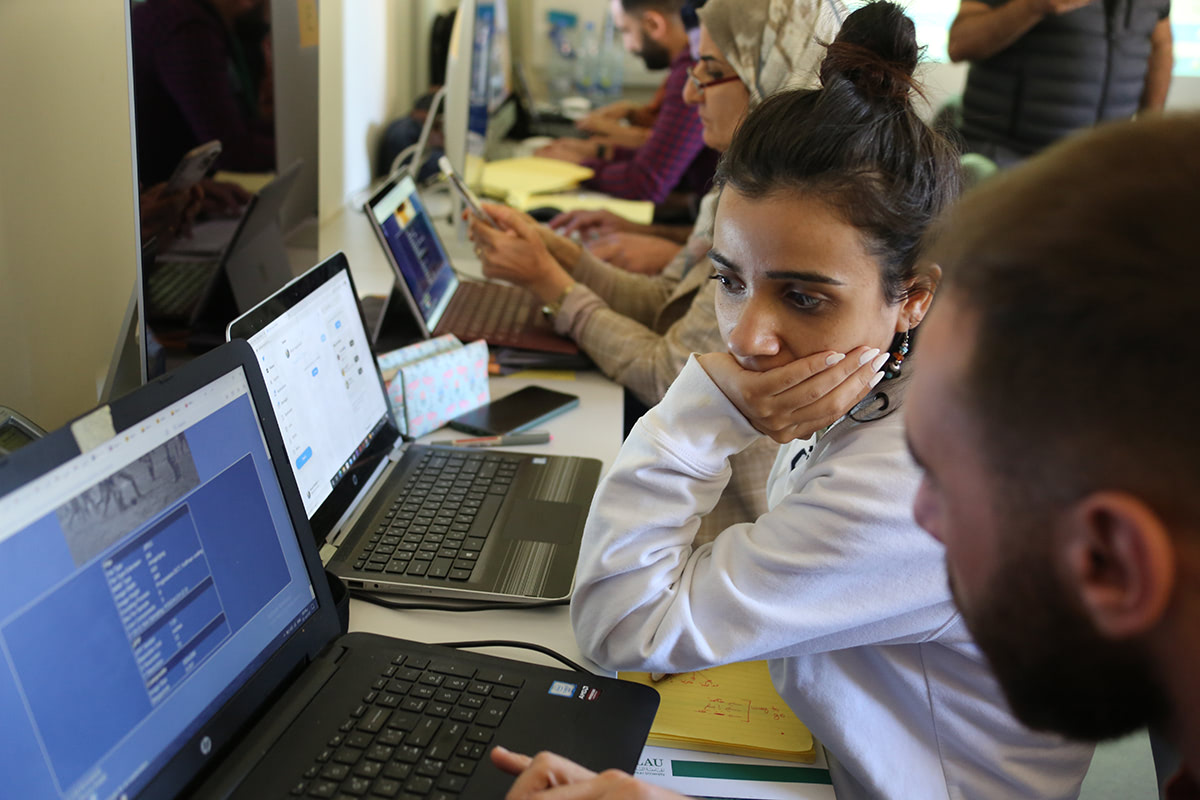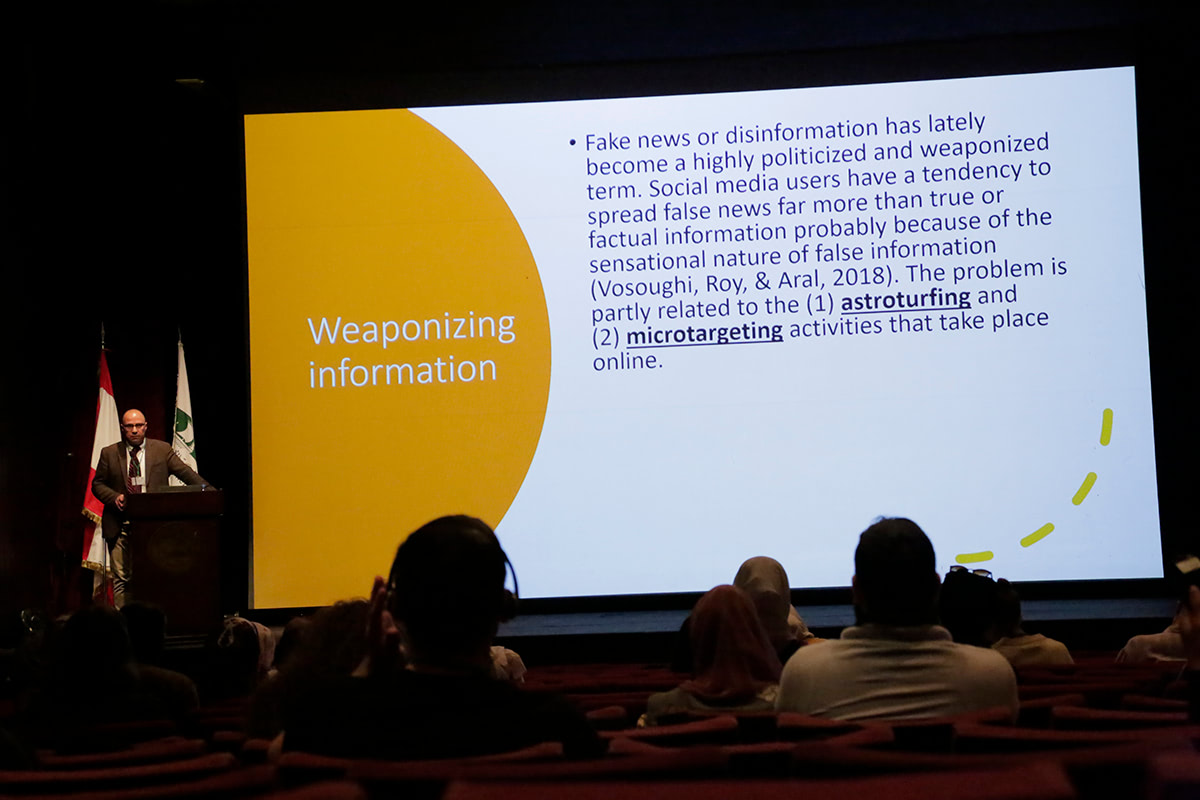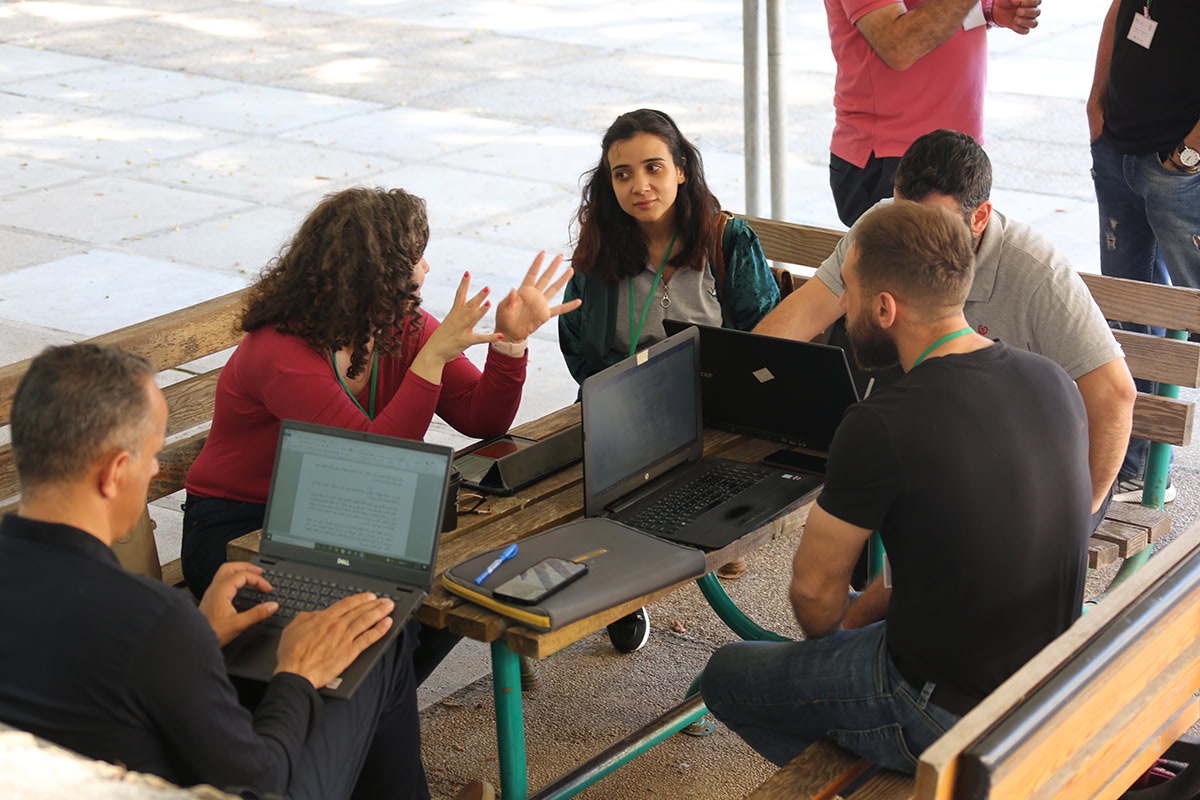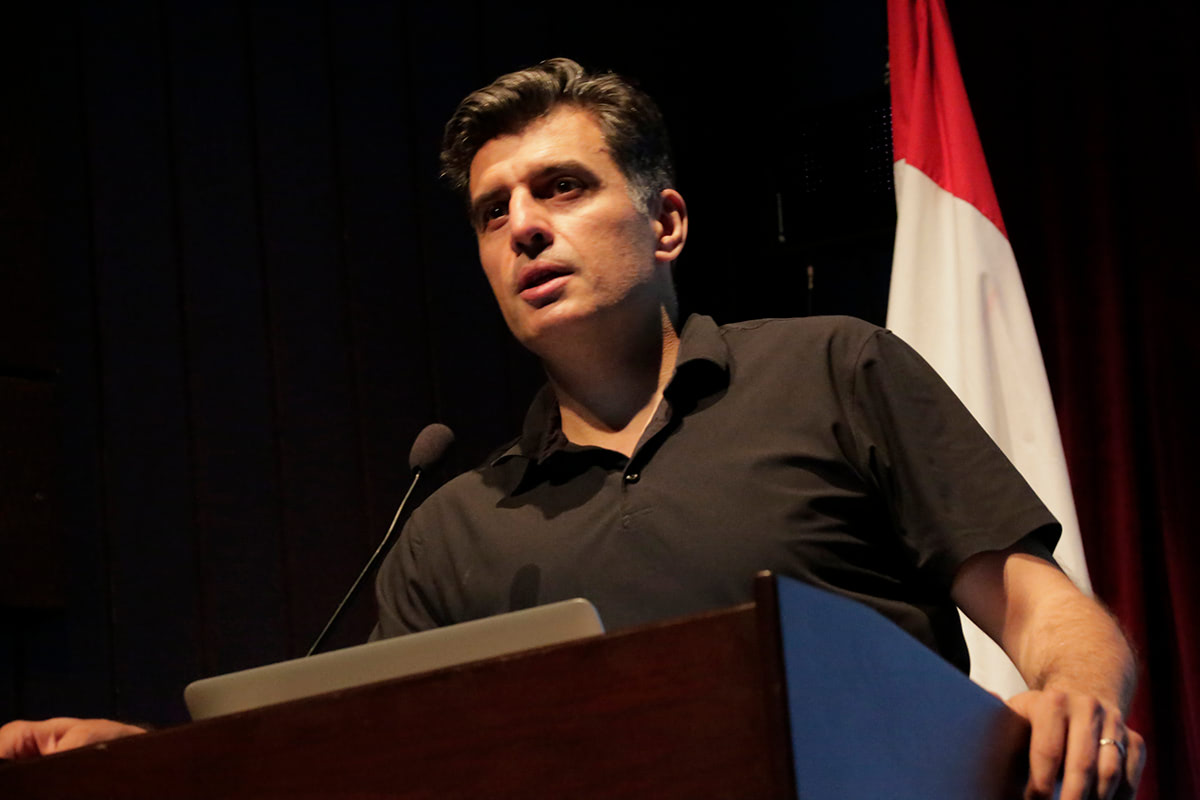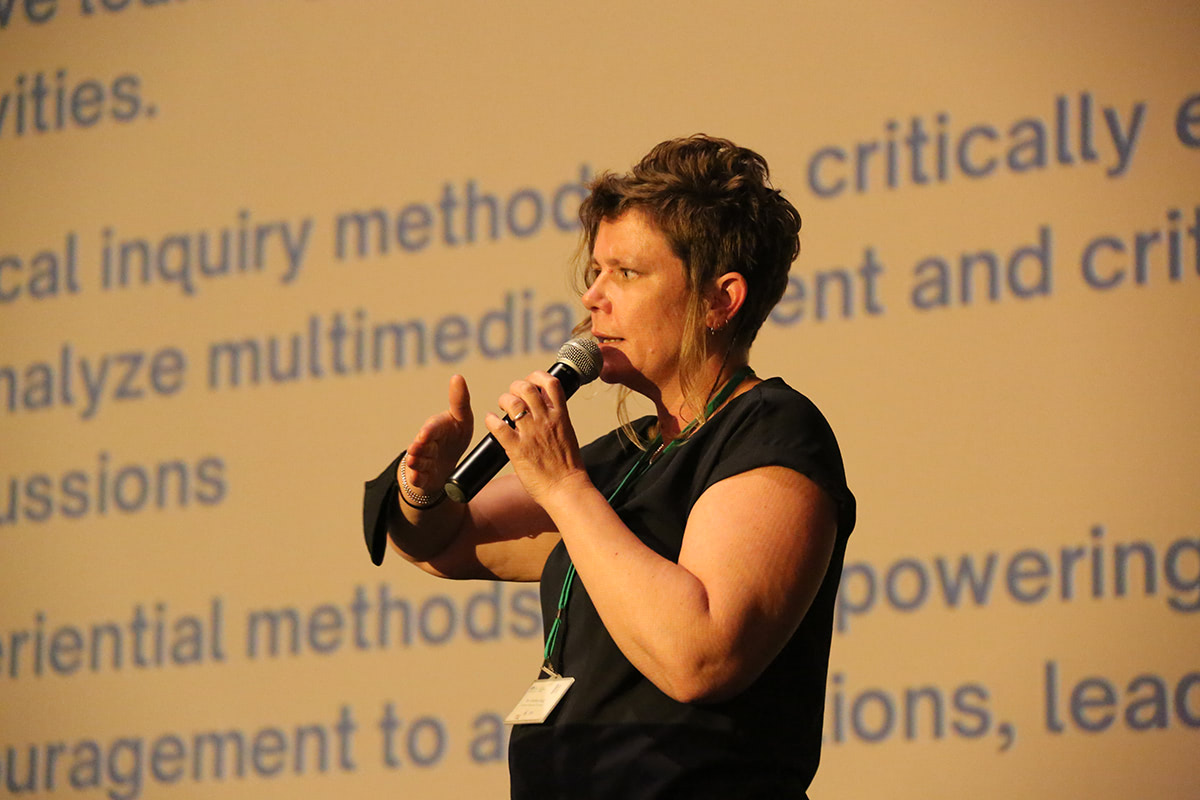MDLAB 2022: Empowering Women and the Youth with Media Literacy
LAU hosts international experts and students for a week-long summer academy on digital media literacy.
For its eighth edition of the Media Digital Literacy Academy of Beirut (MDLAB), LAU’s Institute of Media Research and Training (IMRT) at the School of Arts and Sciences reunited faculty, students, and activists in a week-long session on empowering women and youth through media literacy pedagogies and multimedia skills.
Funded by the Public Affairs Section at the US Embassy in Beirut and the German Academic Exchange Services (DAAD), MDLAB 2022 hosted 75 participants from Egypt, Palestine, Iraq, Jordan, Lebanon, Algeria, Morocco, Tunisia, and Germany to address the representation of women, youth and other marginalized groups in the coverage of protests and civic activism campaigns, and to advance the digital multimedia skills and knowledge of activists, journalists and media educators.
MDLAB has for years been dedicated to expanding media and digital literacy in the region through a number of workshops and trainings, providing the needed curricular material and resources, and empowering faculty, students, journalists, and activists to transfer what they learned to their communities.
Since its launch, MDLAB has succeeded in introducing media and digital literacy to 60 universities and schools in 12 Arab countries by acting as an incubator of innovative ideas and a hub for a network of regional universities and media educators.
In addition to promoting civic engagement and youth-centered discussions, the academy aims to bring together students and scholars from all over the Arab world and Europe for academic and cultural exchange.
“MDLAB is a bigger example of the social change mission at LAU to pull resources together and empower students through education,” says MDLAB Co-director and LAU Assistant Professor of Multimedia Journalism Gretchen King. “The program tries to shine a light on the media and gives people tools to use the media themselves and center other voices which have otherwise been silenced or misrepresented.”
The lectures were given by LAU faculty along with guest speakers and experts from the United States, Canada, Egypt, Iraq, Germany and Denmark. Daily workshops were organized in collaboration with the Issam Fares Institute of Public Policy and International Affairs, Friedrich-Ebert-Stiftung, The Arab Council for Social Sciences, Switch Perspective, NO2TA feminist lab, Iraq Network for Social Media, Digital Lab and Egab media platform, among others.
“We are fortunate to be able to bring together such a vibrant group of scholars, journalists, and activists to discuss pressing current issues of women, youth and media and develop locally rooted media literacy curricula,” says MDLAB Director and LAU Associate Professor of Multimedia Journalism and Media Studies Jad Melki.
In the age of mass information, media literacy forms the core of media activism and education. “It literally saves lives,” says project manager of the Algerian Media Literacy Camp and MDLAB participant, Meriem Saoud. “With this great access to information, comes a bulk of misinformation that you cannot filter out without the needed critical skills.”
Media literacy is also central to differentiating real from fake news nowadays, notes MDLAB participant from Baghdad, Taha Yassine. “There are many factors affecting media representation such as sponsorships, funding, and the political economy that inherently prejudice the news and necessitate greater awareness to be able to accurately digest it,” he says.
In these times of crises in Lebanon and elsewhere, “it is essential to consider the role of the media not only from an academic perspective but also from the perspective of young journalists and media specialists who constitute the main focus of MDLAB curricula,” says Dr. Denijal Jegic, researcher in Multimedia Journalism and Communication at LAU.
